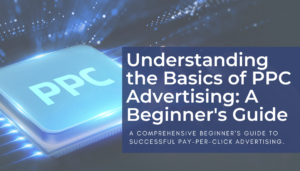As the world of digital marketing continues to evolve, search engine optimization (SEO) has become more important for businesses looking to improve their online presence. One of the key components of successful SEO is effective keyword research. In this post, we will explore the importance of keyword research in SEO, and provide advice on how to conduct effective keyword research for your website. In addition to this, we highlight how DarkSky Digital uses keyword research to help our clients achieve their SEO goals.
What is Keyword Research?
Keyword research is the process of identifying and analyzing the search terms or phrases that people use to find information on the internet. The goal of keyword research is to find the most relevant and valuable keywords for your website so that you can optimize your content and website structure around those keywords. This optimization helps search engines understand what your website is about and how it relates to the search terms people are using. The ultimate goal is to rank higher in search engine results pages (SERPs) for those keywords, therefore, leading to increased visibility and traffic to your website.
Why is Keyword Research Important?
Keyword research is a critical aspect of any successful SEO strategy. Here are a few reasons why:
Targeting the Right Audience: Keyword research helps you understand the language your target audience uses to search for information online. By using the same keywords in your content, you can ensure that your website shows up in front of the right audience.
Discovering New Content Opportunities: Keyword research can help you identify new topics and themes to write about on your website. By understanding what your target audience is searching for, you can create content that meets their needs and provides value.
Improving Website Architecture: Keyword research can help you structure your website in a way that makes it easier for search engines to understand what your site is about. As a result, you can improve the user experience and help search engines crawl and index your site more effectively.
Increasing Visibility: Keyword research helps you identify the most relevant and valuable keywords for your website. By optimizing your content and website structure around those keywords, you can improve your chances of ranking higher in SERPs. As a result, this can lead to increased visibility and traffic to your website.
What are the different types of Keywords used in Keyword Research?
When conducting keyword research, it’s important to understand the different types of keywords that people use when searching for information online. Here are the four different types of keywords:
Short-tail Keywords
Short-tail keywords are broad search terms that typically consist of one or two words. They are also known as “head keywords” and are highly competitive. For example, “shoes” is a short-tail keyword. While these keywords have high search volume, they are also very difficult to rank for because of their popularity.
Long-tail Keywords
Long-tail keywords are longer and more specific search terms that consist of three or more words. They are less competitive than short-tail keywords and are highly targeted. For example, “red running shoes for women” is a long-tail keyword. These keywords may have lower search volume than short-tail keywords, but they are easier to rank for and attract highly targeted traffic.
Branded Keywords
Branded keywords are search terms that include a specific brand name. They are typically used by people who are already familiar with a brand and are searching for specific products or services related to that brand. For example, “Nike shoes” is a branded keyword. These keywords may have a lower search volume, but they are highly targeted and can help increase brand awareness and loyalty.
Geo-targeted Keywords
Geo-targeted keywords are search terms that include a specific location. They are used by people who are searching for products or services in a specific geographic area. For example, “pizza delivery in Los Angeles” is a geo-targeted keyword. These keywords are highly targeted and can help businesses attract local customers.
Understanding the different types of keywords is important when conducting keyword research. By identifying the types of keywords that are most relevant to your target audience, you can create content that addresses their needs and attracts the highly targeted traffic to your website. At DarkSky Digital, we use a variety of tools and techniques to conduct effective keyword research to help our clients achieve their SEO goals.
How to Conduct Effective Keyword Research?
Effective keyword research is essential for any successful SEO campaign. Here are some tips on how to conduct keyword research effectively:
Brainstorm: Start by brainstorming a list of relevant topics and themes related to your business. Think about the questions your target audience may be asking and the problems they are trying to solve. This can help you identify potential keywords to target.
Use Keyword Research Tools: There are several keyword research tools available, such as Google Keyword Planner, Ahrefs, and SEMrush. These tools can help you identify relevant keywords, analyze their search volume, and assess their competitiveness.
Analyze Your Competitors: Analyzing your competitors’ websites can help you identify the keywords they are targeting and the content they are creating. This can help you identify new content opportunities and potential gaps in your content strategy.
Focus on Long-Tail Keywords: Long-tail keywords are more specific and targeted than broad keywords. They often have a lower search volume but are easier to rank for. Focusing on long-tail keywords can help you attract highly targeted traffic to your website.
What should you look for when selecting your keywords?
When selecting keywords for your SEO strategy, it’s important to consider a variety of factors to ensure that you are targeting the most effective and relevant keywords. Here are some key factors to consider when selecting keywords:
Relevance
The keywords you select should be relevant to your business, products, or services. They should accurately reflect what your target audience is searching for and the problems they are trying to solve.
Search Volume
Search volume refers to the number of times a particular keyword is searched for each month. While it’s important to target keywords with high search volume, it’s also important to consider the competition for those keywords. High search volume keywords are often more competitive and difficult to rank for.
Competition
The competition for a particular keyword refers to the number of other websites that are also targeting that keyword. The more competitive a keyword is, the more difficult it will be to rank for that keyword. Therefore, it’s important to find a balance between targeting keywords with high search volume and low competition.
User Intent
User intent refers to the reason why someone is searching for a particular keyword. It’s important to understand the intent behind the keywords you are targeting so that you can create content that meets the needs of your target audience.
Long-term Value
When selecting keywords, it’s important to consider the long-term value of those keywords. Some keywords may have high search volume but may not provide much long-term value to your business. It’s important to target keywords that will attract the right kind of traffic and lead to conversions and sales.
Location
If your business is location-specific, it’s important to target keywords that include geographic locations. This will help attract local customers who are searching for products or services in your area.
At DarkSky Digital, we use a variety of tools and techniques to conduct effective keyword research and select the most effective keywords for our clients’ SEO strategies. By considering these key factors when selecting keywords, we can help our clients achieve their SEO goals and improve their online visibility.
What are the key steps in defining your keyword strategy?
Defining a keyword strategy is an important part of any SEO campaign. It involves identifying the keywords that are most relevant to your business, determining how to optimize your content for those keywords, and developing a plan for ongoing keyword research and optimization. Here are the key steps involved in defining a keyword strategy:
Identify Your Target Audience
The first step in defining a keyword strategy is to identify your target audience. Who are you trying to reach with your content? What are their needs and pain points? What keywords are they likely to use when searching for information related to your products or services?
Conduct Keyword Research
Once you have identified your target audience, it’s time to conduct keyword research. This involves using a variety of tools and techniques to identify the keywords that are most relevant to your business and have the potential to attract the most traffic. This includes analyzing search volume, competition, and user intent.
Develop a List of Target Keywords
Based on your keyword research, develop a list of target keywords that you will use to optimize your content. This should include a mix of short-tail, long-tail, branded, and geo-targeted keywords.
Optimize Your Content
Once you have identified your target keywords, it’s time to optimize your content for those keywords. This involves incorporating the keywords into your website’s metadata, headlines, body copy, and image alt tags.
Develop a Content Plan
In addition to optimizing your existing content, it’s important to develop a plan for creating new content that is optimized for your target keywords. This includes blog posts, product descriptions, and other types of content that can help attract traffic and engage your target audience.
Monitor and Adjust Your Strategy
Finally, it’s important to monitor the performance of your keyword strategy and make adjustments as needed. This includes tracking your website’s search engine rankings, traffic, and conversions, as well as monitoring changes in search engine algorithms and adjusting your strategy accordingly.
At DarkSky Digital, we work with our clients to develop customized keyword strategies that are tailored to their specific business goals and target audience. By following these key steps, we can help our clients achieve their SEO goals and improve their online visibility.
How DarkSky Digital Uses Effective Keyword Research in Our SEO Practices?
At DarkSky Digital, we understand the importance of effective keyword research in SEO. Here are a few ways we use keyword research to help our clients achieve their SEO goals:
Understanding Client Needs: We work closely with our clients to understand their business goals and target audience. This helps us identify relevant keywords and topics to target in their content strategy.
Comprehensive Research: We use a variety of keyword research tools and techniques to conduct comprehensive keyword research for our clients. This includes analyzing competitor websites, conducting customer surveys, and using data from Google Analytics.
Data-Driven Approach: We take a data-driven approach to keyword research and SEO. We analyze search volume, competition, and user intent to identify the most relevant and valuable keywords for our client’s websites.
Targeting Long-Tail Keywords: We focus on targeting long-tail keywords to attract highly targeted traffic to our client’s websites. This strategy helps our clients rank for more specific search terms and reach audiences that are more likely to convert.
Optimizing Website Architecture: We optimize our client’s website architecture to ensure that search engines can easily crawl and index their sites. This includes organizing content around relevant keywords and ensuring that the site structure is user-friendly and intuitive.
Content Creation: We use keyword research to guide our clients’ content creation strategy. This includes creating blog posts, landing pages, and other content that targets specific keywords. Therefore, providing value to their target audience.
Conclusion
To sum up, effective keyword research is essential for any successful SEO strategy. By identifying the most relevant and valuable keywords for your website, you can optimize your content and website structure to improve your chances of ranking higher in SERPs. At DarkSky Digital, we understand the importance of keyword research and how it helps our clients achieve their SEO goals. By taking a data-driven approach to keyword research and focusing on long-tail keywords, we help our clients attract highly targeted traffic to their websites and achieve their business objectives.
GET IN TOUCH
Get in touch for a free SEO consultation & quote
View some of our latest blog posts below:
- Understanding the Basics of Pay-Per-Click Advertising: A Beginner’s Guide

- 5 Types of Content Every Marketer Should Know About

- The Impact of Customer Reviews on Your Online Reputation

- Measuring the ROI of Your Social Media Marketing Campaign: Unraveling the Secrets to Digital Success

- Content Marketing vs. Traditional Advertising: Which is More Effective?

- Title: The Future of SEO: Unlocking the Secrets to Digital Success

- Harnessing the Power of Social Media: The Ultimate Guide to Social Media Reputation Management for Businesses

- Unveiling the Power of Pay-Per-Click Advertising: Exploring the Pros and Cons


